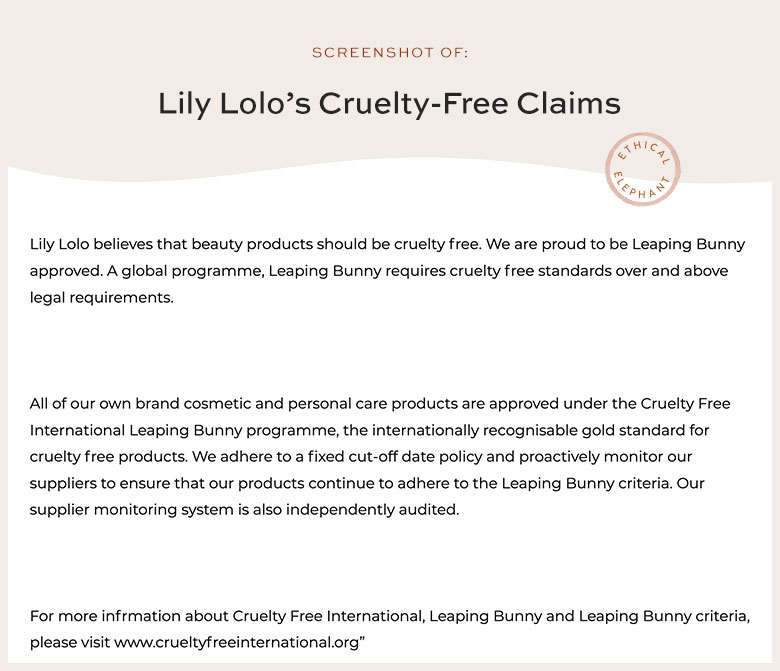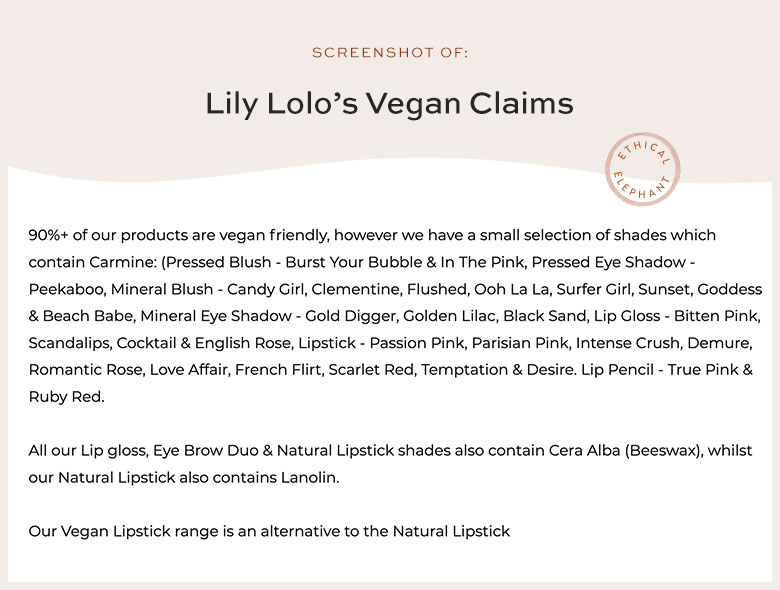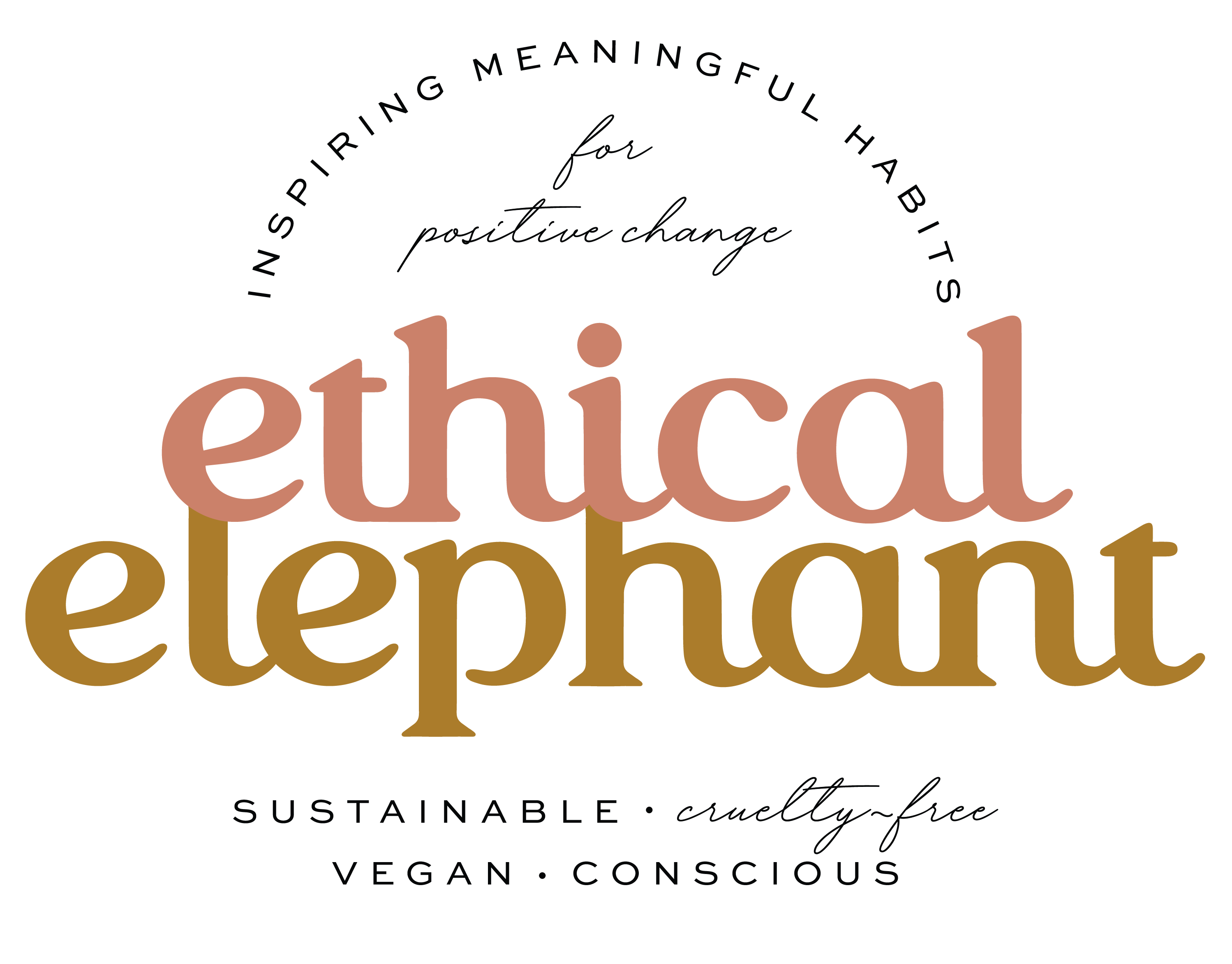This post may contain affiliate links that at no additional cost to you, I may earn a small commission.
You can find Lily Lolo cruelty-free products at The Detox Market, Credo Beauty, and Safe & Chic.
Lily Lolo is Cruelty-Free
Lily Lolo has confirmed they do not test their products or ingredients on animals or ask others to test on their behalf. Their suppliers also do not test on animals, nor do they allow their products to be tested on animals when required by law. And finally, their products are not sold in stores in mainland China or any other country that may require animal testing.
By our standards, we would consider Lily Lolo to be Cruelty-Free.
Below is a screenshot of what’s currently stated on Lily Lolo’s website about its animal testing policy:

What About China’s Animal Testing Laws?
Lily Lolo has confirmed they do not sell their products in retail stores in mainland China; therefore, they are not required to test on animals.
“I can confirm that we do not sell in mainland China.”
As of May 1, 2021, some imported ordinary cosmetics can be exempt from animal testing under certain conditions. However, for the most part, animal testing is still legally required for most imported cosmetics in 2022.
Cruelty-Free Policies
Note that there is no legal definition for the label ‘Cruelty-Free.’ It can mean different things to different people. But Cruelty-Free is generally used to imply no animal testing. More specifically, the ingredients, formulation, or finished product are not tested on animals at any stage of product development.
At ethical elephant, we always assess a company’s cruelty-free policy using our Cruelty-Free Checklist. This ensures no animal testing was performed by the brand itself, its suppliers, or any third parties.
Also, note that Cruelty-Free and Vegan don’t always mean the same thing.
Lily Lolo is Not 100% Vegan
‘Vegan’ in cosmetics can refer to an entire brand that is 100% Vegan or a specific product is vegan.
In the case of Lily Lolo, not all of their products are vegan. But they have some products that are suitable for vegans.
How to know which of Lily Lolo products are vegan?
All of Lily Lolo’s vegan products are clearly marked on their website.
The following is a screenshot of what’s currently stated on Lily Lolo’s website about its vegan claims:

Vegan Policies
Similar to ‘Cruelty-Free,’ there is no standard or legal definition for the label ‘Vegan.’ But it usually means no animal-derived ingredients or animal by-products.
Some common animal products used in cosmetics include carmine, lanolin, snail mucus, beeswax, honey, pearl or silk-derived ingredients, animal-based glycerin, keratin, and squalene.
There are plant-based and synthetic alternatives to animal-derived ingredients. But it’s sometimes difficult to know with certainty whether a product is vegan just by reading the ingredient list.
So it’s best to ask the company and manufacturers to ensure the ingredients they’ve chosen to use were from non-animal sources.
Where are Lily Lolo’s products made?
Lily Lolo states on its website:
“90% of our products are made in the UK, with the rest made in Europe. All our brushes are made In China using synthetic hair.”
*Note: Cosmetics made in China are not required to be tested on animals. Only cosmetics that are imported and sold in physical stores in mainland China are required to be tested on animals according to China’s animal testing laws.
Ethical Mica Mining Policy
Mica is a mineral that’s used in cosmetics to add a shimmery effect. But the mining of natural mica has been linked to child labor and human rights violations.
Unless the company discloses its mica mining policy, we have no way of knowing whether its mica is ethically sourced without child or forced labor.
So I asked Lily Lolo if their mica is ethically sourced without the use of child labor and they responded by stating,
“Thank you for reaching out. The mica is ethically sourced and there is no use of child labor. I don’t believe there are any EU natural makeup business that use child labor as the regulations for “natural makeup” are very strict. There are many forms and verifications since the EU requires higher standards than the USA.“
And on Lily Lolo’s website, it states,
“Some of our products contain Mica which is mined in various locations around the world.
Our suppliers have certificates to explain that they conform to all the Government regulations and all our ingredients are ethically sourced”
I hope this article helped you to understand Lily Lolo’s cruelty-free and vegan status and by choosing cruelty-free together, we can help end animal testing for cosmetics once and for all!







